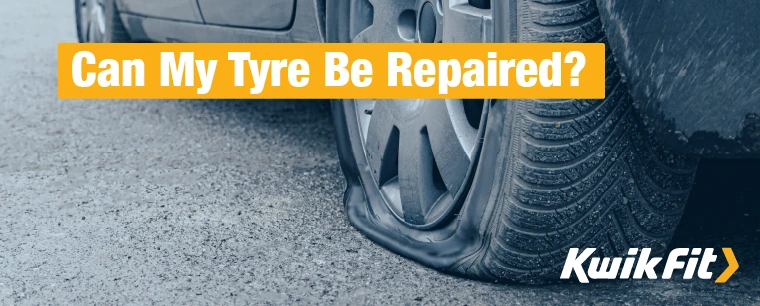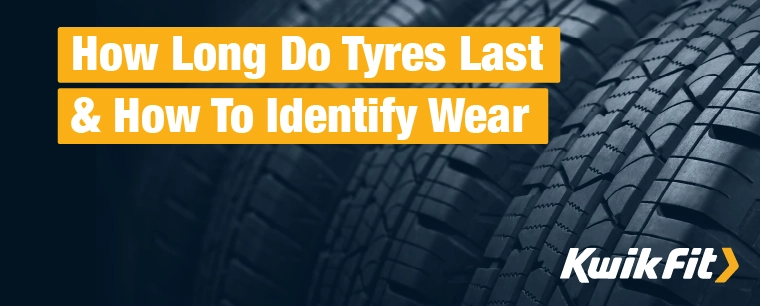Can Inactivity Affect My Carís Tyres?
Jack Dreyer | Friday 15th September 2023 8:00am
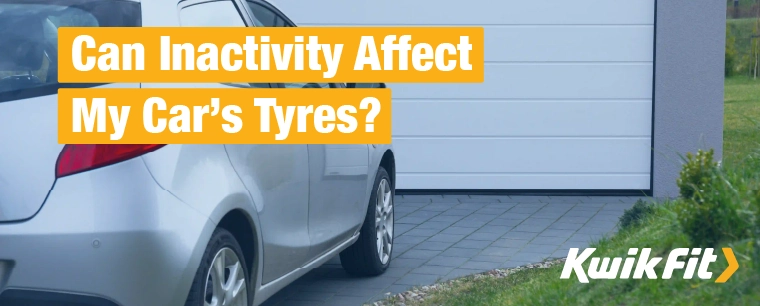
During the COVID-19 pandemic, many people found themselves using their cars less and less each month. As non-essential travel was restricted and many people began to work from home, the need to use cars dwindled. And that habit has stuck for a significant portion of the population! But could inactivity actually have an effect on car tyres?
Regardless of specific circumstances, it isn't uncommon for people to leave their cars parked for long periods of time. And while this isnít likely to cause too many issues, itís a good idea to consider factors like tyre pressure and puncture prevention to help you avoid unnecessary tyre repairs.
How inactivity affects car tyres
Your tyres experience a lot of wear and tear when in use. When your car is stationary, however, there are less opportunities for its tyres to get damaged ó but the risk isnít entirely removed.
Flat spotting
When the tyres have been stationary under a car for a long period of time, flat spotting can occur. This essentially causes a flat spot in the area where the tyre meets the ground. The severity of the flat spot and how long it will last depends on how heavy the car is, the amount of time itís been stationary, tyre pressure, and even the weather outside.
How to avoid flat spots on tyres
To prevent flat spotting, try to move your car weekly ó even if itís just rolling forwards or backwards a little to shift the weight onto a new spot. Also, make sure that your tyres are properly inflated. If you notice a disturbance or vibration when you drive your car after a period of inactivity, then consider visiting your local garage to check out whether you have semi-permanent flat spotting. They can help explain how to fix it, or whether a tyre replacement is required.
Tyre deflation
You may find that your tyres lose pressure or start to slightly deflate over time while the car is immobile. This will only increase the risk of flat spots developing, as more surface area of the tyre sits on the ground.
Remember that having tyres that arenít properly inflated can result in poor handling, and potentially even a loss of vehicle control. Because of this, itís really important that you check your tyre pressure before you drive if your car has sat stationary for a while.
You can usually find information on what your specific modelís tyre pressure should be in either the manufacturerís handbook, in the driverís door area, or inside the fuel filler flap. Alternatively, check out our handy tyre pressure search tool.
Why do tyres lose air after sitting?
Rubber is porous ó and while itís not enough to cause an issue normally, air molecules can make their way through the rubber slowly over a period of time.
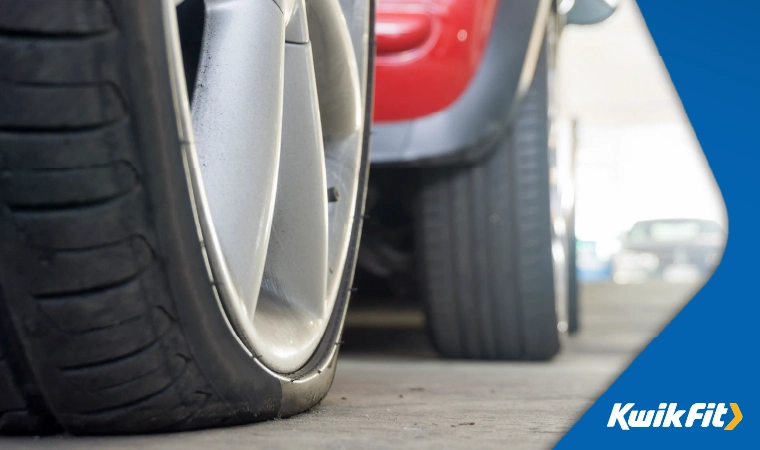
Tyre degradation & age
Tyres also degrade naturally through exposure to heat, sunlight, and rain, with the amount of damage depending on the level of exposure. Keep in mind that rubber is a natural material, and try to store your car somewhere sheltered and dry where possible. If you do keep your car stationary in a garage, then make sure that itís well ventilated, and not damp.
Finally, itís worth keeping in mind that old tyres are likely to suffer more from inactivity than newer tyres. Fortunately, all tyres should have the date that they were manufactured listed on their sidewall, so itís worth taking a look and seeing if you may be due a tyre change. Itís recommended that all tyres that are 10 years old or more should be replaced, whether they have been in use or not ó and even if theyíre not outwardly showing signs of damage.
If youíre not sure how to find out how old your tyres are, take a look at our handy tyre age guide.
How long can tyres last without driving?
The lifespan of a tyre depends on several factors, including the type of tyre, its age, and the storage conditions itís kept in. Generally, if a tyre is kept in optimal conditions and not used, it can last for up to 10 years. Keep in mind, though, that most manufacturers say tyres are only guaranteed to be safe for around 5 years ó and that optimal conditions are quite specific.
How to look after immobile tyres
If youíre worried about infrequent driving and want to avoid unnecessary repairs or even tyre replacements, keep in mind the following:
- Keep your tyres at the correct pressure.
- Regularly rotate your tyres and ensure that youíre moving your car.
- Store your car in a sheltered place out of direct sunlight if possible.
- Donít forget to check your tread.
- Monitor your tyres for damage Ė more regularly for older tyres.
On the other hand, if youíre simply looking for a way to store disused tyres (say, youíve swapped out your summer tyres for winter ones), we have another blog for that! Check out our guide to storing your tyres.
Before driving your car after a long period of inactivity, do visual checks of the tyres before you set off - keeping an eye out for any damage or cracks which may have appeared. Itís also a good idea to check the tyre pressure and inflate if needed. Youíll know your tyres are still good if your tread depth is above 1.6mm, there are no flat spots, cuts, or bulges, and theyíre inflated to the correct pressure.
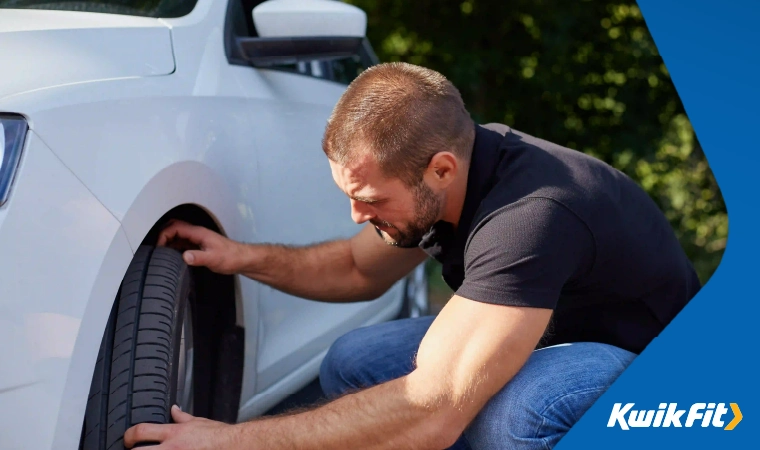
Need more information on tyre replacement?
If you do find yourself in the unfortunate situation of encountering tyre damage, donít panic ó weíre here to help. Find out more about tyre repairs on our website, or head to your local Kwik Fit centre to talk to one of our experts about your tyre replacements.
If you need to get back on the road more often, consider booking a free tyre safety check with one of our trained technicians, who can help to make sure that your tyres wonít be slowing you down any time soon.
Any facts, figures and prices shown in our blog articles are correct at time of publication.
Featured Articles
Can My Tyre Be Repaired?
Wednesday 22nd November 2023
It can be hard to tell if your puncture can be repaired or not. Read our handy guide to understand if your tyre can be saved or if you need a replacement.
How Long Do Tyres Last & How To Identify Wear
Wednesday 18th October 2023
Driving on old or worn tyres can be dangerous so you need to maintain them properly. Read about how long tyres should last and how to know if your tyres are old.
Wet Weather Driving Tips Ė Staying Safe in the Rain
Thursday 27th October 2022
Driving in the rain isnít only a pain but can be surprisingly hazardous Ė here are our top tips for staying safe in wet & icy weather this winter.

